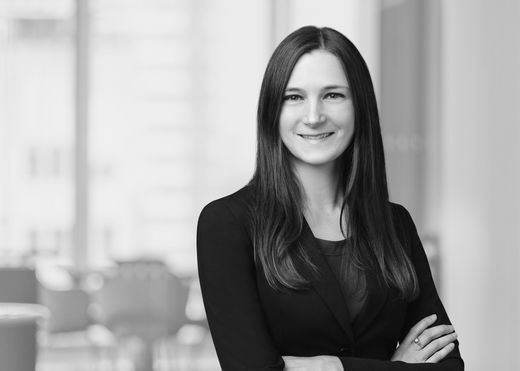SCOTUS Ruling: Pure Omissions Are Not Actionable Under Rule 10b-5

On April 12, 2024, the U.S. Supreme Court issued an important decision in the case of Macquarie Infrastructure Corp. v. Moab Partners, L.P., No. 22-1165. Justice Sotomayor, writing for a unanimous Court, ruled that “pure omissions are not actionable under Rule 10b-5(b).” In other words, a pure omission (i.e., where a speaker says nothing) cannot support a private claim under Section 10(b) of the Securities Exchange Act of 1934 (the “Exchange Act”) and Rule 10b–5, even if such an omission could constitute a violation of Item 303 of Regulation S-K (“Item 303”). The decision, which can be found here, resolves a split among circuit courts, narrows the scope of public companies’ liability for private rights of action under federal securities laws, and is generally being regarded as a significant win for publicly traded companies.
Background
By way of background, Macquarie Infrastructure Corp. (“Macquarie”) owned and operated businesses in the infrastructure sector, including a U.S.-based subsidiary that operated “bulk liquid storage terminals,” which “handle and store liquid commodities, such as petroleum, biofuels, chemicals and oil products.”1 One of those liquid products, “No. 6 fuel oil,” became subject to a regulatory ban issued by the International Maritime Organization (“IMO”). That regulatory action capped sulfur content in shipping fuels at 0.5%, whereas the sulfur content in No. 6 fuel oil is generally closer to 3%2. Macquarie did not publicly acknowledge, through public disclosures or elsewhere, that the IMO’s regulatory action could materially and adversely affect its operations and financial performance. Macquarie’s operations and financial performance did, in fact, deteriorate as a result of decreased demand for No. 6 fuel oil and its stock price fell by approximately 41%3. Moab Partners, L.P. (“Moab”) and other investors initiated a securities class action against Macquarie asserting claims under Section 10(b) of the Exchange Act and Rule 10b–5 thereunder. The plaintiffs alleged that Macquarie (as well as other defendants) made material misrepresentations and omissions concerning the anticipated impact that IMO’s regulatory action could have on their financial results.
A key assertion in the litigation centered on Moab’s claim that disclosures by Macquarie and its co-defendants were materially false and misleading because they did not disclose the full extent to which IMO’s regulatory action could materially and adversely affect the defendants’ financial performance. The plaintiffs averred that the defendants had a duty to disclose this information pursuant to Item 3034, which requires the disclosure of information concerning “any known trends or uncertainties that have had or that the registrant reasonably expects will have a material favorable or unfavorable impact on net sales or revenues or income from continuing operations.”5
The U.S. District Court for the Southern District of New York (“SDNY”) dismissed the plaintiffs’ complaint. But the U.S. Court of Appeals for the Second Circuit reversed, holding that “[t]he failure to make a material disclosure required by Item 303 can serve as the basis for [private] claims under . . . Section 10(b) [of the Exchange Act] if the other elements have been sufficiently pleaded.” The Second Circuit’s ruling created a circuit split with the Third, Ninth and Eleventh Circuits, which had held that Item 303 does not involve a duty to disclose under Section 10(b) and, on that basis, a violation of Item 303 does not automatically expose a registrant to liability thereunder.
The defendants sought the U.S. Supreme Court’s review of the Second Circuit’s decision, urging the justices to resolve the split among the circuit courts and arguing that the Second Circuit’s ruling was faulty because it constituted an expansion of private rights of action under Section 10(b) and could ultimately undermine public disclosures with companies incentivized to over-disclose in order to protect themselves against liability, thereby rendering meaningless the disclosures upon which investors rely. For their part, the plaintiffs took the contrary view, arguing that the Second Circuit’s decision did not expand impermissibly private rights of action under Section 10(b) because “plaintiffs must prove both a violation of Item 303 and all the elements of Section 10(b)” claims.
Ruling
The U.S. Supreme Court granted certiorari and, after hearing oral argument, resolved the question of whether the failure to make disclosures under Item 303 can serve as the basis for a securities fraud claim under Section 10(b) of the Exchange Act. In its unanimous opinion authored by Justice Sotomayor, the Court vacated the Second Circuit’s ruling, holding that “Rule 10b–5(b) does not proscribe pure omissions.” Instead, Rule 10b–5 “prohibits omitting material facts necessary to make the ‘statements made ... not misleading,’” which “requires disclosure of information necessary to ensure that statements already made are clear and complete.” Put differently, Rule 10b–5 “covers half-truths, not pure omissions.” To explain “the difference between a pure omission and a half-truth,” the Court analogized to “a child not telling his parents he ate a whole cake and telling them he had dessert.”6 Ultimately, the Court reasoned that because Rule 10b–5(b) prohibits omissions only when a defendant neglects to “state a material fact necessary in order to make the statements made . . . not misleading,” liability could not logically extend to pure omissions absent a predicate statement.
In reaching that conclusion, the Court cites its prior ruling in Matrixx Initiatives, Inc. v. Siracusano, 563 U. S. 27, 44 (2011), in which it found that “Section 10(b) and Rule 10b–5(b) do not create an affirmative duty to disclose any and all material information. Disclosure is required under these provisions only when necessary ‘to make ... statements made, in the light of the circumstances under which they were made, not misleading.’”7 The Court also noted that Congress “imposed liability for pure omissions in Section 11(a) of the Securities Act of 1933,” prohibiting “any registration statement that ‘contain[s] an untrue statement of a material fact or omit[s] to state a material fact required to be stated therein or necessary to make the statements therein not misleading.’”8 As a result, Section 11(a) is the statutory mechanism that “creates liability for failure to speak on a subject at all,” while neither Section 10(b) nor Rule 10b–5(b) includes similar language. On that basis, the Court concluded that “[n]either Congress in Section 10(b) nor the SEC in Rule 10b–5(b) mirrored Section 11(a) to create liability for pure omissions.”9
Finally, the Court rejected the plaintiffs’ argument that, in the absence of expanded liability under either of Section 10(b) or Rule 10b–5(b), “broad immunity [would result] any time an issuer fraudulently omits information Congress and the SEC require it to disclose.”10 On the contrary, the Court found that “private parties remain free to bring claims based on Item 303 violations that create misleading half-truths” and “the SEC retains authority to prosecute violations of its own regulations.”
1 Macquarie Infrastructure Corp. et al. v. Moab Partners, L.P. et al., 601 U.S. ___ (2024) at 2.
2 Id.
3 Id. at 3.
4 Id.
5 17 C.F.R. § 229.303(a)(3)(ii) (2018).
6 Id. at 5.
7 Id. at 6.
8 Id.
9 Id.
10 Id. at 7.












